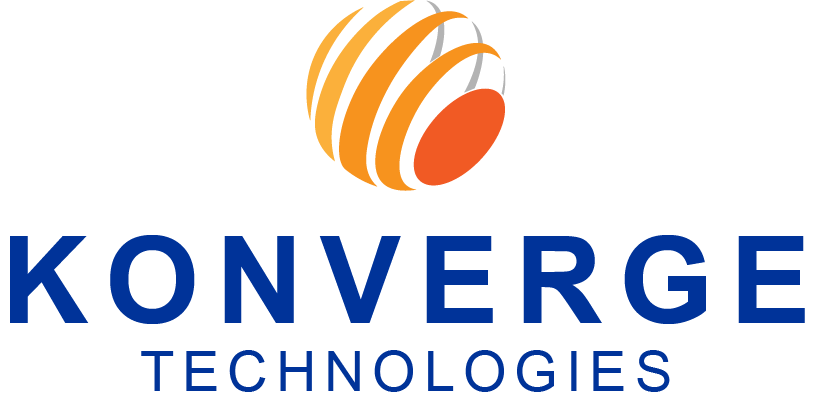
Benefits of Using RPA Software for Your Business

Companies that want to succeed cannot ignore RPA anymore. While RPA stands for Robotic Process Automation, it extends its advantages in all strategic business moves. It reduces the time spent by employees on redundant and repetitive tasks and empowers them to focus on more important tasks and business objectives.
RPA enables businesses to limit human involvement in mundane tasks and direct them to critical tasks requiring decision-making and human intelligence. It also helps businesses save expenses by bringing robots with human potential for repetitive tasks and improves productivity as robots get more work done in less time. This also reduces the chances of error and leads to the creation of a productive work environment in the organization.
RPA provides the stability a business needs at low costs and thus it becomes crucial for running the business. In this blog, we will cover the benefits of RPA, how it helps your business and how to choose the right RPA software for your business.
What is RPA software?
If you’re like most business owners, you’re always looking for ways to improve efficiency and cut costs. You may have considered automating some of your processes, but weren’t sure if it was the right move for your business. Robotic process automation (RPA) is a type of software that can help you automate repetitive tasks, freeing up your employees to focus on more important work. In this blog post, we’ll discuss the benefits of using RPA software for your business.
RPA software can be used to automate a variety of tasks, including data entry, form filling, and email responses. This can save your employees a significant amount of time, which can then be reinvested into other areas of the business. In addition to saving time, RPA can also help improve accuracy and consistency in these tasks. By automating these processes, you can be confident that they will be completed correctly every time.
Another benefit of RPA is that it can help to standardize processes across different departments or locations. This is particularly helpful if you have multiple employees working on the same task but in different geographical areas. By using RPA, you can ensure that everyone is completing the task in the same way, which can help to improve efficiency and avoid errors.
What are the benefits of using RPA software?
There are many benefits of RPA software, including:
- Increased efficiency and productivity: RPA software can help businesses automate tasks that are time-consuming and/or repetitive, freeing up employees to focus on more productive work. It can, in fact, ensure round-the-clock data entry without pausing and without errors which ensures getting more work done and fast fixing of errors. The employees who were handling data entry can now work on making the best use of the data automatically entered.
- Improved accuracy and quality: By automating tasks that are prone to human error, RPA can help businesses improve the accuracy and quality of their work. Because software bots do not get tired and distracted, they are not prone to human errors. There are no wrong entries, no typos and mistakes. The accuracy of data depends on OCR (Optical Character Recognition) used by the software.
- Reduced costs: RPA can help businesses save money by reducing the need for manual labor, as well as the associated costs such as training and supervision. According to NASSCOM, companies implementing RPA can reduce 35-65% of the cost for the onshore process and 10-30% for the offshore process.
- Increased customer satisfaction and improved employee engagement: By automating tasks that customers find tedious or time-consuming, businesses can improve customer satisfaction levels. It enables better customer communication, generates actionable customer feedback and reviews and creates relevant customer targets.
- Increased flexibility: RPA software is highly configurable and can be adapted to fit the specific needs of a business. This means that businesses can use RPA to automate a wide range of tasks, both simple and complex.
- Scalability: RPA software provides the ability to quickly and easily add new users and processes as your business grows. This scalability means that you won’t have to worry about your technology infrastructure being updated as RPA offers an easy adaptation to new technologies. Since the robotic process is an adjustable task and has time-specific requirements, it enables small businesses to cope with the unpredictability of the evolving technology market.
- Security: With RPA, you do not have to worry about data and information leaks because of well-controlled data access. Sensitive data is always a concern for companies. The bot does not understand the significance of this sensitive data and thus they don’t differentiate between any data and protect it from breaches.
- Non-disruptive: A lot of companies are uncertain of replacing their traditional system because of suspected downtime, cost and complex IT infrastructure. RPA IT infrastructure can prove useful for the lifetime, strengthening the legacy system and automating business operations. RPA ensures that the core technology program remains intact to make the current business process efficient and slowly create advanced systems.
How can RPA software help your business?
RPA software is designed to automate business processes. It can be used in a variety of industries to improve efficiency and productivity. This type of software is particularly beneficial for businesses that have a lot of data to process.
As businesses strive to do more with less, many are turning to robotic process automation (RPA) software to help them optimize their operations. If your business is looking for ways to improve its operations, RPA software may be the right solution.
How to choose the right RPA software for your business
When it comes to choosing the right RPA software for your business, there are a few key factors you need to keep in mind. First, you need to consider the specific needs of your business and what type of automation you’re looking for. There are a variety of RPA software options on the market, so it’s important to find one that offers the features and functionality you need.
Another important factor to consider is the scalability of the RPA software. You need to make sure the software can grow with your business and can handle an increasing workload as your company expands. Make sure to read online reviews and talk to other businesses that have implemented RPA software to get their opinion on which option is best for your company.
Finally, you need to take into account the cost of the RPA software. There are free and open-source options available, but they may not have all the features and functionality you’re looking for. If you have a larger budget, there are enterprise-level options that offer more features but come at a higher price tag. Choose the option that fits both your needs and your budget.
Conclusion
There are many benefits of using RPA software for your business. RPA can help you automate repetitive tasks, save time and money, and improve your efficiency. If you’re looking for a way to streamline your business operations, RPA is definitely worth considering.
In conclusion, if you are searching for ways to streamline your business operations and increase efficiency, using RPA software can offer numerous benefits. It can automate repetitive tasks, save time and money, and help your company operate more smoothly.
Investing in RPA technology is a wise decision that can yield long-term benefits for your company’s growth and success. As India is a rapidly growing market for RPA companies, several reliable options exist. By partnering with a reputable RPA company in India, like Konverge Technologies, you can leverage their expertise and experience to implement RPA solutions tailored to your business needs.



